Go-ahead for conference to take first step to ban nuclear arms in Mideast - if Israel agrees
By Edith M. Lederer, APSaturday, May 29, 2010
Israel key to conference on banning nuclear arms
UNITED NATIONS — After 15 years, Arab nations finally won agreement from the United States and the other nuclear powers to take the first step toward banning nuclear weapons from the Middle East. Now the next move is Israel’s.
But the Israeli government rejected the resolution Saturday, calling it “deeply flawed and hypocritical.”
Although the U.S. joined the 188 other member nations of the Nuclear Nonproliferation Treaty on Friday in giving a green light to a conference in 2012 “on the establishment of a Middle East zone free of nuclear weapons and all other weapons of mass destruction,” senior U.S. officials appeared to backtrack afterward, setting several conditions for the talks to go ahead.
Taking the toughest line, U.S. National Security Adviser Gen. James Jones said in a statement Friday night that the United States has “serious reservations” about the 2012 conference and believes Mideast peace and full compliance by all countries in the region to their arms control and nonproliferation obligations “are essential precursors” of a WMD-free zone. The compliance demand appeared to be aimed at Iran, which the U.S. believes is pursuing a nuclear weapons program despite Tehran’s claims its only goal is nuclear power.
Jones also strongly defended longtime U.S. ally Israel, which was singled out for not being a member of the NPT. He said the United States “deplores” the naming of Israel which puts prospects for the 2012 conference “in doubt.” As a co-sponsor of the conference, Jones said the United States will ensure that it will only takes place “if and when all countries feel confident that they can attend.”
Israel, which has not signed the NPT, said due to the “distorted nature” of the resolution, it would not take part in its implementation.
“It singles out Israel, the Middle East’s only true democracy and the only country threatened with annihilation. Yet the terrorist regime in Iran, which is racing to develop nuclear weapons and which openly threatens to wipe Israel off the map, is not even mentioned in the resolution,” Israel’s government said in its statement.
It said the resolution ignores “the real threats” facing the Middle East and “not only fails to advance regional security but actually sets it back.”
The Arab proposal for a WMD-free zone — to pressure Israel to give up its undeclared arsenal of perhaps 80 nuclear warheads — was endorsed by the 1995 NPT conference but never acted on. At this month’s NPT review, a conference to begin talks on a nuclear-free Mideast was considered by many delegates as “the make-or-break issue,” and agreement on the 2012 meeting was widely welcomed after the 28-page final declaration was approved by consensus.
But the U.S. reaction raised questions and doubts about whether Israel, Iran and other countries in the Mideast will even hold a meeting in two years.
Several delegates suggested that earlier comments by U.S. Undersecretary of State Ellen Tauscher and President Barack Obama’s coordinator for weapons of mass destruction, Gary Samore, warning about the difficulties of holding a conference and persuading Israel to attend may have been sparked by the upcoming visit of Israel’s Prime Minister Benjamin Netanyahu to the White House on Tuesday.
Egypt’s U.N. Ambassador Maged Abdelaziz, speaking for the 118-nation Nonaligned Movement of mainly developing countries, said that during the negotiations there was “a little bit of disagreement” on mentioning Israel.
But he said NAM members thought that since the document issued at the end of the 2000 NPT review conference mentioned the need for Israel to join the treaty and subject its nuclear capabilities to International Atomic Energy Agency safeguards there was “no going back on that commitment” and Israel had to be mentioned in the 2010 document as well.
Iran had loomed as a potential spoiler that would block consensus at this conference, and Iran and Syria dissented loudly on various points in the final hours, but no objections were raised in the concluding session.
Facing possible new U.N. sanctions because of its refusal to suspend uranium enrichment and enter negotiations on its nuclear program, the Iranians had sought to turn the spotlight instead on the big nuclear powers, demanding the final document call for speedier disarmament moves.
Iran’s chief delegate Ali Asghar Soltanieh lamented that the deadline of 2025 sought by NAM for complete disarmament was not included in the final document. Nonetheless, Soltanieh called “the limited measures” in the agreement “a step forward.”
Jones, the U.S. National Security Adviser, said the failure of the resolution to mention Iran, which he said poses the greatest threat of nuclear proliferation in the region, is “deplorable.”
Iran’s Soltanieh said the Americans should “think twice” before making such statements. “This was not the right reaction to a positive response, positive measure by our delegation joining the consensus,” he said.
According to the final document, U.N. Secretary-General Ban Ki-moon and the co-sponsors of the 1995 Mideast resolution — the U.S., Russia and Britain — will now appoint a “facilitator” to conduct consultations in preparation for the 2012 conference.
Jones said the United States “will insist that the conference operate only by consensus by the regional countries.”
Under the 1970 nonproliferation treaty, nations without nuclear weapons committed not to acquire them; those with them committed to move toward their elimination; and all endorsed everyone’s right to develop peaceful nuclear energy.
The last NPT conference, in 2005, failed to adopt a consensus declaration. In sharp contrast, a final declaration was not only adopted this year but for the first time it laid out complex action plans for all three of the treaty’s “pillars” — nonproliferation, disarmament and peaceful nuclear energy.
Under its action plan, the five recognized nuclear-weapon states — the United States, Russia, Britain, France and China — commit to speed up arms reductions, take other steps to diminish the importance of atomic weapons, and report back on progress by 2014. The plan also has 24 steps to promote nonproliferation including making the treaty universal to include Israel, Pakistan India and North Korea, all of which have or are suspected of having nuclear arsenals.
Tags: Barack Obama, International Agreements, Iran, Israel, Middle East, North America, Nuclear Weapons, Political Issues, United Nations, United States, Weapons Administration, Weapons Of Mass Destruction
|
June 4, 2010: 2:25 pm
It’s a good thing that the conference won’t be held till 2012. It will give us more time to check on Iran’s Nuclear program and other hostile countries. |
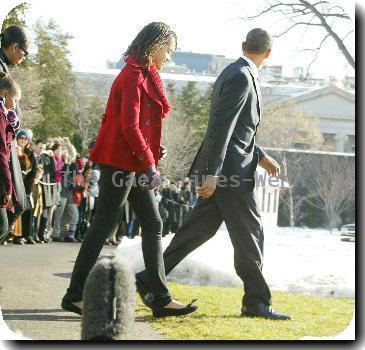


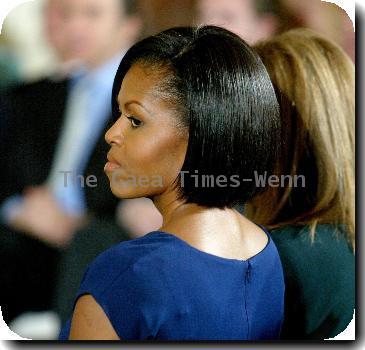
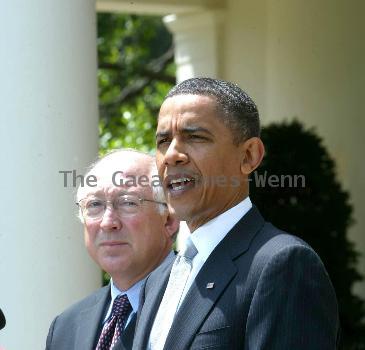

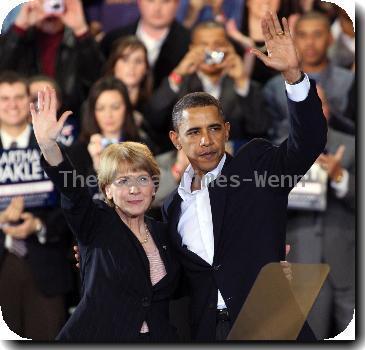

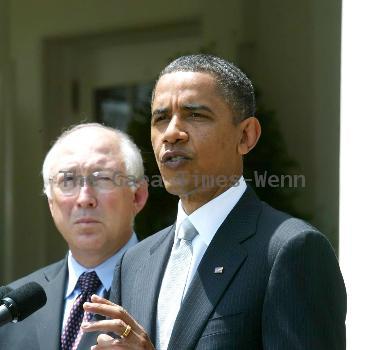

Lou Adam